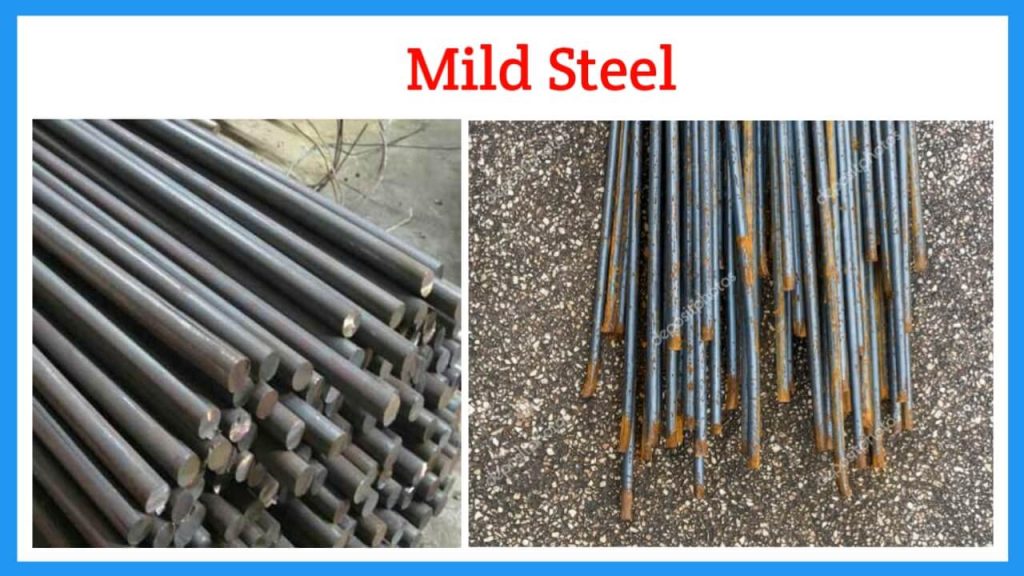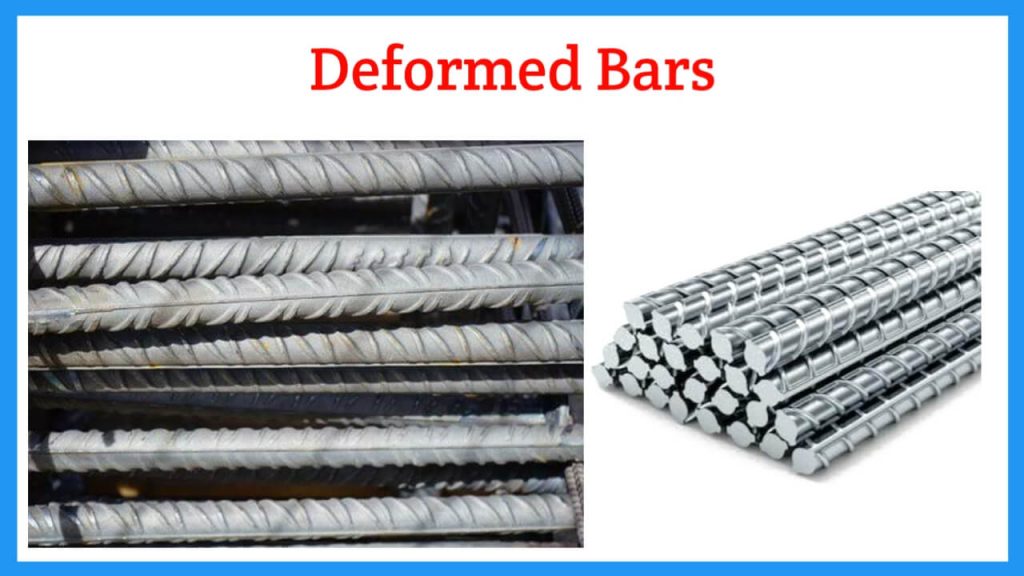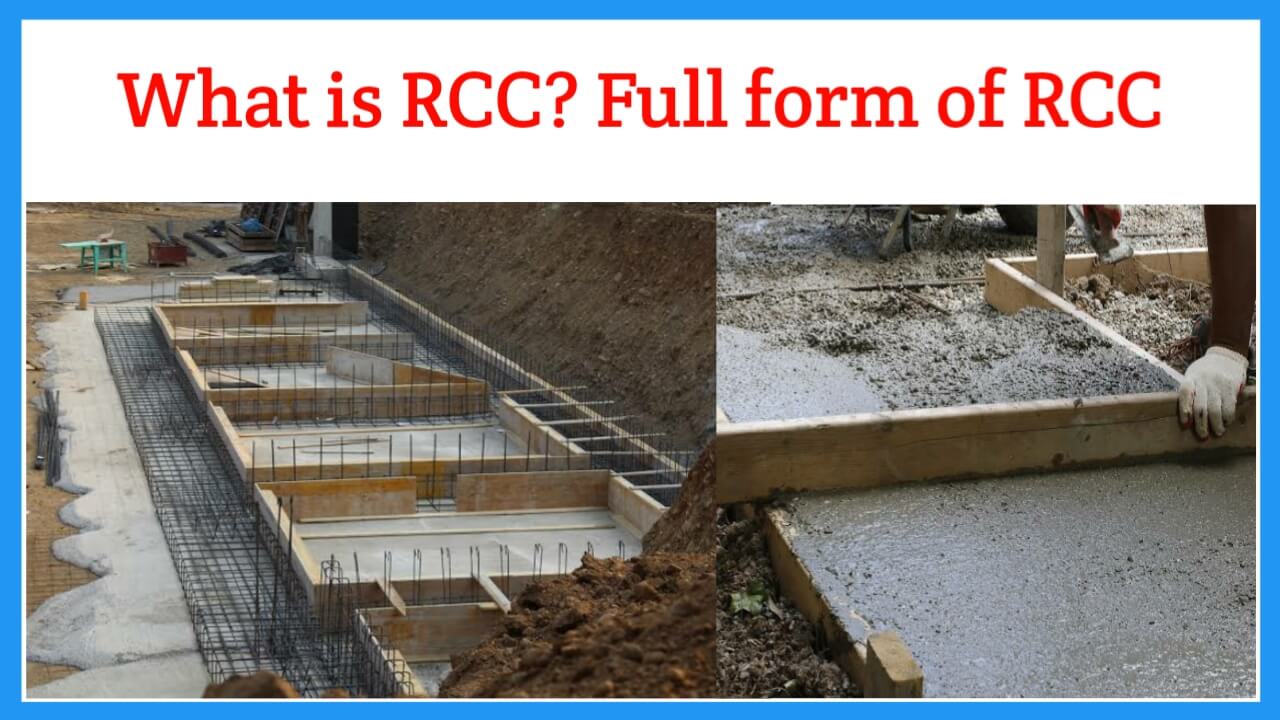In this article, we explain what is RCC in civil engineering, RCC full form in civil engineering, Properties of Reinforced Cement Concrete, the advantages, and disadvantages of reinforced cement concrete, Why steel used in RCC. Minimum requirement of RCC. as per is 456:2000. Types of steel in RCC and so more.
so please read the article till the end.
Table of Contents
RCC full Form in civil engineering:
RCC full form in civil engineering is Reinforced cement concrete.
What is RCC in civil engineering?
Reinforced cement concrete is defined as a type of concrete that consists of Plain concrete with Steel reinforcement to increase the Tensile strength of concrete.
RCC is known as reinforced cement concrete in civil engineering.
Plain concrete is very strong in a compressive strength but it is very weak in tensile Strength.
Steel reinforcement used in Plain concrete to increase tensile strength of concrete and make it ductile.
Minimum requirements of RCC Elements as per IS456: 2000:
- Minimum grade of concrete used for RCC is M20 grade.
- Minimum Diameter of main steel is 12mm.
- Minimum Nos of steel in RCC is 4.
- Minimum dia of stirrups is 6mm.
- Minimum size of RCC beam is 225mm×225mm.
- Minimum size of RCC column is 225mm×300mm.
- Minimum cover in RCC beam is 25mm.
- Minimum cover in RCC column is 40mm.
- Minimum cover in RCC slab is 20mm.
- Minimum cover in RCC Footing is 50mm.
- Minimum Cement content in RCC elements is 300 kg to 350kg.
Types of Steel in RCC
Different types of Steel used in reinforced cement concrete which are given below.
- Mild steel
- High yield strength deformed bar (HYSD)
- Thermo mechanically treated bar (TMT)
1. Mild steel:

Mild steel is a type of carbon steel with a low amount of carbon. Mild steel is also known as low carbon steel.
Mild steel is also called as plain steel in construction.
Yield strength of mild steel is 250 N/mm2
Now a day’s mild steel is rarely used in RCC construction. Only one range of mild steel available in the market is 6mm dia mild steel bar.
2. High yield strength deformed bar (HYSD):

HYSD full form is High yield strength deformed bar is a type of carbon steel with a high amount of carbon. High yield strength deformed bar is also known as Tor steel.
High yield strength deformed bar manufactured under heat process. During high yield strength deformed bar manufacturing post heat treatment process, the bar twisted for shaping.
- High yield strength deformed bar strength is higher than mild steel.
- High yield strength deformed bars has 50% more yield stress compares to mild steel.
- High yield strength deformed bar has corrugation or ribs on the surface of the bar, to increase the bond and prevent slipping of the bar in concrete.
- High yield strength deformed bar is more preferred in RCC construction
- High yield strength deformed bar available in various rages in market.
- High yield strength deformed bar have Fe-415.
Rages of HYSD: 8mm, 10mm, 12mm, 16mm, 20mm, 25mm, 32mm, 36mm.
Thermo mechanically treated bar:

Thermo mechanically treated bar is high strength variety of steel produced from low carbon steel. It is one type High yield strength deformed bar.
- Thermo mechanically treated bar manufactured under heat process with applying deformation during the process to enhance their tensile strength.
- TMT bars used when High yield strength deformed bar was not meet the criteria to select it for construction.
- Thermo mechanically treated bars generally used to protect structures against earthquakes and other types of natural disasters.
- TMT bars have Fe-500.
Ranges of TMT bars are 8mm, 10mm, 12mm, 16mm, 20mm, 25mm, 32mm, 36mm, 40mm.
RCC Elements Used in Construction:
Different types of RCC elements used in a building which are given below.
- Beam
- Column
- Lintel
- Chajja, Brackets
- Slab
- Footing
- Shear Wall
- Frames
- Elevator shafts
- Railway sleepers
- RCC Structures:
- Water Tank
- Bridges
- RCC Roads
- Retaining wall
- Dam
- Canal diversion structures
- Multi-storey buildings
- Chimney
- Towers
- Airports pavements
- Dock and harbours
- Under water structures, etc.
Why steel used in reinforced cement concrete?
In a building many forces acting on Structural elements. The compressive and tensile forces are two major forces acting on the structural elements. These two forces are enough to destroy buildings. Also, tensile force is responsible for tensile cracks.
Concrete is very strong against compressive forces but it is weak in tensile force. Therefore to increase tensile strength, Steel is used in concrete.
Why the steel is best reinforcement in RCC?
The steel has high tensile strength and the bond between steel and concrete is very strong compare to other materials.
Also Thermal expansion coefficient of both steel and concrete is the same. Concrete and steel expand and contract due to temperature at similar rates.
That’s why steel is best material for concrete.
Properties of RCC in civil engineering:
- It should be able to resist any load.
- It should have great resistance against compressive stress, tensile stress, shear stress.
- It should have proper cover to protect reinforcement against corrosion.
- It should have good durability.
- It should have good fire resistance.
- It should have great resistance against atmospheric attacks like rain, snow, wind, etc.
- Hair cracks should be its permissible limit.
Advantages of Reinforced Cement Concrete (RCC):
- It is durable.
- It tensile strength more compared to plain concrete.
- It is easy to cast in any shape.
- Its material was easily available.
- It resistance against fire is great.
- It is not affected by termite.
- It is not reacted with chemicals means it has great resistance against chemical attack.
- It is economical.
- Maintenance cost should be nil.
Disadvantages of Reinforced Cement Concrete (RCC):
- Required skilled labours.
- Required good quality control otherwise its resistant against various factors is decreased.
- Scrap value of RCC should be nil.
- Time consumption is more. RCC construction required more time.

I am a Professional Civil & Structural Engineer having more than 4 years of experience in Engineering, Procurement and Construction industry. Here i sharing the latest updates of EPC Projects and Construction News.

